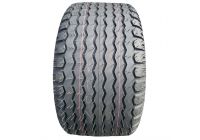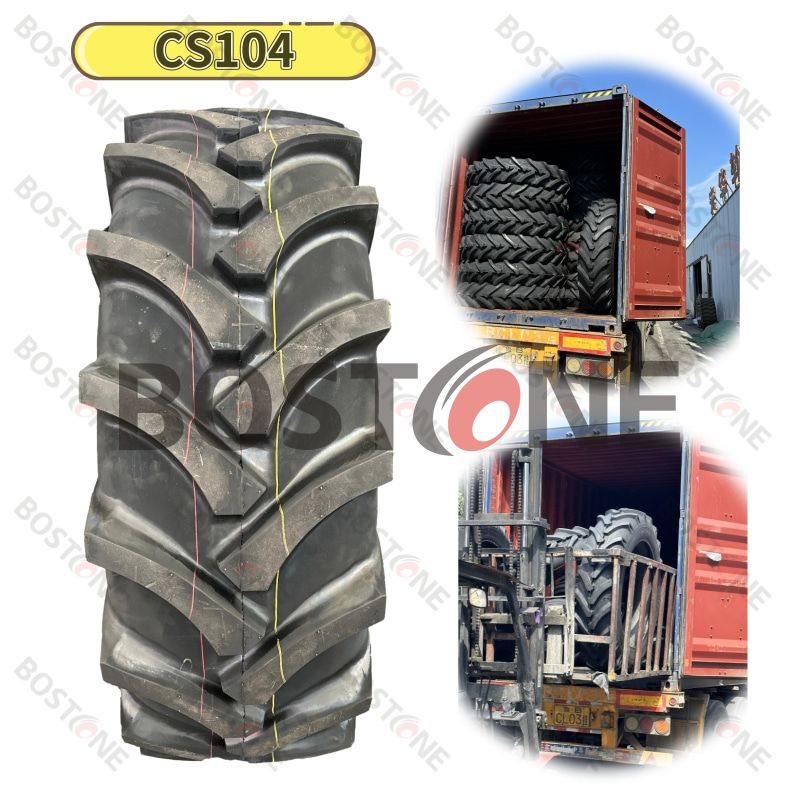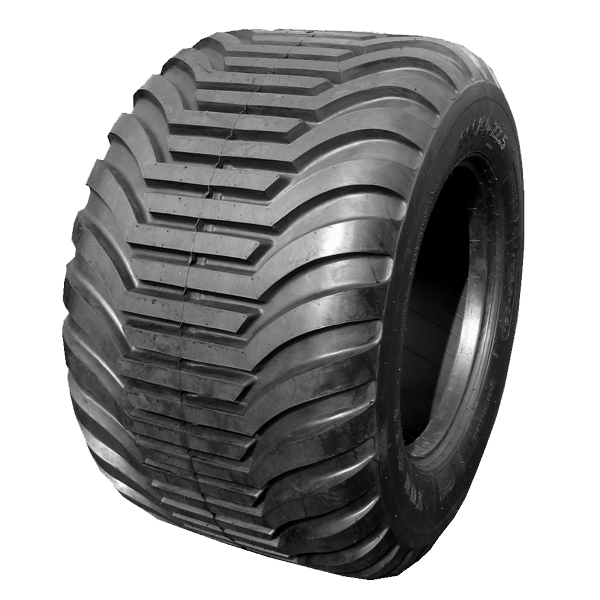Sprayer tyres, Rice transplanter tires and wheels, Agricultural tyres, tractor tires, Industrial Tyres, OTR Tires, skid tires, truck tires

In the agricultural sector, where various types of terrains pose unique challenges, wetland areas present some of the most demanding conditions for farm equipment. The right tyres are essential for ensuring that machinery can operate efficiently and safely on these waterlogged and muddy surfaces. Bostone has developed a range of agricultural tyres specifically designed to address the challenges of wetland terrain, providing the stability, durability, and traction needed for efficient farming operations. This article explores the importance of specialized agricultural tyres for wetland terrain and includes a comparison of Bostone’s products against peer offerings, demonstrating their competitive advantages in the market.
Working on wetland terrain requires tyres that can withstand muddy, soft ground without causing excessive soil damage or becoming stuck. Bostone’s agricultural tyres are specifically designed with these conditions in mind, allowing farm equipment to operate smoothly and efficiently even in difficult conditions. Here are the primary benefits of using agricultural tyres on wetland terrain:
Enhanced Traction on Soft Ground
Wetlands are characterized by soft, unstable ground, making it difficult for standard tyres to gain traction. Bostone’s agricultural tyres have deep, self-cleaning treads designed to dig into soft ground, providing the grip needed to keep machinery moving forward. This feature minimizes slippage and prevents delays, ensuring that operations remain productive even in muddy environments.
Reduced Soil Compaction
In farming, soil compaction can lead to reduced crop growth and damage to the natural soil structure. Bostone’s tyres are engineered with a broader surface area to distribute weight more evenly across wetland surfaces. This reduces pressure on the soil, helping to protect it from compaction and preserving its ability to retain water and nutrients—essential for crop health in wetlands.
Durability in Harsh, Moist Conditions
Wetland terrain can accelerate tyre wear due to moisture, mud, and organic material exposure. Bostone tyres are made from high-quality rubber compounds that resist wear and corrosion, making them more durable and cost-effective in the long run. This resilience is crucial for farms operating in wetland areas, where tyres are subjected to challenging and variable conditions.
Self-Cleaning Treads
In muddy wetlands, tyres can quickly become clogged with mud, reducing traction and leading to performance issues. Bostone’s tyres are designed with self-cleaning treads that eject mud and debris as the vehicle moves, allowing for consistent traction without the need for frequent cleaning. This feature saves time and labor, allowing operators to focus on the task at hand.
Improved Stability and Safety
Stability is a major concern when operating heavy farm equipment on soft, uneven terrain. Bostone tyres have reinforced sidewalls and enhanced stability features that prevent tipping and provide balanced support, reducing the risk of accidents. These safety benefits are particularly important in wetland areas, where sudden shifts in terrain can challenge standard tyres.

Choosing the right agricultural tyres involves considering factors such as durability, traction, soil protection, and ease of maintenance. Here’s how Bostone agricultural tyres stack up against competitor products in key areas:
Traction on Soft, Muddy Terrain: Bostone’s tyres offer deeper treads specifically designed for maximum grip in wetlands, compared to standard agricultural tyres that may be optimized for dry or mixed terrain. This gives Bostone an advantage in providing consistent traction on waterlogged ground.
Self-Cleaning Capabilities: Unlike many peer products that require frequent manual cleaning in wet conditions, Bostone tyres feature enhanced self-cleaning treads. This feature prevents clogging and reduces downtime, which is particularly valuable in wetlands where mud buildup is common.
Material Quality and Durability: Bostone’s premium rubber compounds are formulated to resist degradation caused by moisture and mud. Competitors often use conventional rubber that may wear out faster, particularly in wetland environments, where tyres are exposed to more abrasive and corrosive conditions.
Soil Protection: With a design focus on low ground pressure, Bostone tyres help protect delicate wetland soil from compaction. Some competing brands offer general-purpose tyres that may compact soil more, posing a risk to wetland crop health.
As agricultural practices evolve, the demand for advanced tyre technology to support wetland farming continues to grow. Companies are innovating with new materials, designs, and features to address the specific challenges posed by these environments. Bostone is actively engaged in aligning its agricultural tyre products with these industry trends.
The environmental impact of tyre production is a growing concern in agriculture, especially in areas where soil and water quality are critical, such as wetlands. Bostone is exploring eco-friendly materials and sustainable production methods to reduce its environmental footprint. By creating tyres that last longer and are made from partially renewable materials, Bostone is supporting the industry’s push toward more sustainable farming practices in delicate wetland ecosystems.
Smart technology in agriculture is expanding rapidly, including the integration of sensors within tyres to monitor pressure, tread depth, and wear in real time. Bostone is developing smart agricultural tyres with embedded sensors to monitor tyre health, optimize inflation levels, and provide alerts for maintenance. In wetlands, this technology is especially useful, as changes in ground conditions can cause tyres to wear unevenly or lose pressure, affecting performance and safety.
While wetland-specific tyres provide excellent performance in muddy conditions, many farms require tyres that can also operate on drier land. Bostone is innovating with tread designs that offer a balance between wetland and dry-land performance. This versatility reduces the need for frequent tyre changes, making operations more efficient and cost-effective for farmers who manage both wetland and non-wetland fields.

Agricultural tyres are essential components that enable farm equipment to perform efficiently on wetland terrain. Bostone’s specialized agricultural tyres are designed to address the unique demands of wetlands, offering benefits like enhanced traction, soil protection, durability, and self-cleaning capabilities. By comparing Bostone’s products with peer offerings, it’s clear that the company’s focus on wetland-specific challenges and commitment to quality set its tyres apart in the market.
As the agricultural industry continues to advance, the need for durable, eco-friendly, and smart agricultural tyres will become more pronounced. Bostone’s dedication to innovation and sustainability ensures that their products are well-suited to meet the evolving needs of wetland farming, providing farmers with the agility, stability, and reliability they need for successful operations in challenging environments.